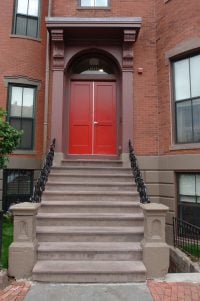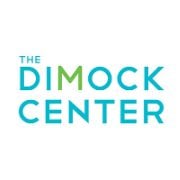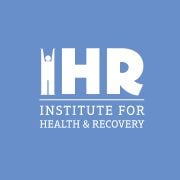Victory House - Boston
Drug Rehab Center in Boston, Massachusetts
Victory House in Boston is an established addiction treatment facility that provides personalized care and access to state-certified services, such as detoxification and dual-diagnosis treatments, for individuals struggling with substance use disorders.
About This Boston, MA Facility
Victory House - Boston, located in Boston, Massachusetts, is a renowned addiction treatment facility dedicated to helping individuals overcome substance abuse and achieve lasting recovery.
- Comprehensive treatment for various addictions, including alcoholism, drug addiction, and opioid dependence
- Specialized dual diagnosis care for co-occurring mental health and substance abuse disorders
- Evidence-based therapies and individualized treatment plans tailored to each client's needs
- Supportive and structured environment conducive to healing and personal growth
Victory Programs opens doors to health, housing, recovery, and hope for individuals and families facing homelessness, addiction, or other chronic illnesses. Accredited by SAMHSA and holding a State License, Victory House - Boston ensures the highest standards of quality and safety in its services.
The facility specializes in treating alcoholism, drug addiction, opioid addiction, dual diagnosis cases, and mental health issues related to substance abuse. Their comprehensive approach encompasses detoxification, inpatient rehabilitation, residential treatment, sober-living options, and aftercare support. Evidence-based therapies and individualized treatment plans are employed to address each client's unique circumstances and promote long-term recovery.
Genders
Ages
Modality
Additional
Accreditations
State License
SAMHSA
Conditions and Issues Treated
Substance abuse refers to the intensive and inappropriate use of psychoactive substances. Psychoactive substances are those that affect brain function. These include illegal drugs, alcohol, and even the excessive use of prescription drugs. The overuse of psychoactive substances leads to severe physical or psychological dependence. It also affects the social life and relationships of the affected individual. Substance abuse is treatable.
The duration of treatment at Victory House - Boston in Boston can require weeks or even months depending on the severity of the condition as there is a risk of relapse. Treatment options include medications, counseling sessions, various types of behavioral therapy, and group therapy in different combinations.
Addiction to prescription opioid painkillers like oxycodone and hydrocodone, and illicit opioids such as heroin, leads to potentially life-threatening withdrawal symptoms when discontinued. Opioid addiction treatment typically involves an inpatient stay at facilities like Victory House - Boston to make sure they get through withdrawal safely. Treatment also includes comprehensive mental health counseling.
Conditions such as anxiety, depression, schizophrenia, bipolar disorder are part of mental illness. This may occur that opioid abuse and vice versa are induced by mental illness. Diagnosing a concurrent diagnosis or co-occurring condition at Victory House - Boston is essential to understand the addiction better.
Levels of Care Offered
This center offers a variety of custom treatment tailored to individual recovery. Currently available are Aftercare Support, Detox, Drug Rehab, Dual-Diagnosis, Inpatient, Residential, Sober-Living / Half-Way, with additional therapies available as listed below.
Detox is the primary substance abuse treatment administered to a patient suffering from drug addiction. Detox helps patients in Boston, MA recover from drug-addicted through regular monitoring of medical professionals and temporary utilization medication, other techniques.
If you or someone you know suffers from a substance abuse problem, it is crucial to understand the different options available for treatment and seek help as early as possible. These days, detox centers offer several methods for drug and alcohol addiction rehabilitation and treatment.
Sober living houses like Victory House - Boston in Boston help the patient move from a structured recovery facility to an everyday life smoothly. They are also known as homes for recuperation or half-way houses. SLH offers the value of living with a peer group with similar experiences and is recovering collectively, instead of individualized or alone.
Residential treatment programs are those that offer housing and meals in addition to substance abuse treatment. Rehab facilities that offer residential treatment allow patients to focus solely on recovery, in an environment totally separate from their lives. Some rehab centers specialize in short-term residential treatment (a few days to a week or two), while others solely provide treatment on a long-term basis (several weeks to months). Some offer both, and tailor treatment to the patient’s individual requirements.
Aftercare comprises services that help recovering addicts readjust to normal day-to-day Massachusetts activities. It can last a year or even longer. Services include individual and family counseling, medications to reduce cravings, and treatment of psychiatric and other medical conditions. Aftercare support begins once you have completed earlier stages of treatment.
Victory House - Boston‘s Therapies & Programs
In addiction recovery at Victory House - Boston, therapy plays a significant role. This helps patients get to the root of their addiction and discover how the problems that contributed to their use can be handled better. Therapy can be performed in a group and one on one settings. The patient interacts with the therapist in a one-on-one atmosphere during individual therapy. This encourages them to reflect on the underlying addiction problems and develop ways to avoid potential future abuse.
Recovering from addiction involves recovering relationships as well. One of the most common areas of stress and damage during addiction is in intimate relationships. Couples therapy at Victory House - Boston can rebuild trust and joy that may have been damaged. Addiction involves everyone in the family, not only the addict.
Family roles can change in damaging ways that may require professional help to rebalance. Successful intimate relationships can decrease the chances for relapse by ensuring a healthy environment after rehab in Boston, MA.
Addiction and alcoholism affect the entire family. For this reason, family therapy is vital to a person’s recovery from addiction. In contrast to couples counseling, family therapy at Victory House - Boston may include siblings, children, parents, and other significant people in the recovering person’s life. Family support is one of the most important pillars of recovery.
Many people turn to drugs and alcohol as a way of processing trauma that has affected them in the past. Trauma can include abuse, neglect, the loss of a loved one and other unpleasant incidents. Trauma therapy at Victory House - Boston helps patients process trauma. It gives them the tools to deal with it in a healthier manner.
Dialectical behavioral therapy (DBT) is a type of Cognitive Behavioral Therapy that focuses on eliminating specific negative thoughts such as suicidal thoughts that can potentially lead to an individual inflicting self-harm. It is useful in the treatment of patients exhibiting uncontrollable emotions, intense mood swings, and borderline personality disorders.
The term “Dialectic” means the integration of opposites. In the substance abuse context, DBT refers to accepting the patient’s addiction and working to change their thoughts and behavior. It improves life skills such as controlling the intense emotions without reacting impulsively, resolving the interpersonal conflicts effectively, and promoting awareness about self and others.
Cognitive Behavioral Therapy (CBT) examines the relationship between a patient’s thoughts, feelings and behaviors. Victory House - Boston aims to establish a healthy response to thoughts and feelings as an alternative to turning to drugs and alcohol. It also promotes healthy communication between addicts and those around them. It is and effective therapy for people suffering with all types of addictions.
Rational Emotive Behavior Therapy (REBT) is a type of cognitive therapy. It is based on the principle that irrational thoughts are responsible for the emotional and behavioral changes in addiction. So, the therapy starts with identifying the underlying irrational thoughts. These thoughts are then challenged and opposed logically and then replaced with positive thoughts. It also helps to change unwanted behavior with techniques such as meditation.
By imparting positive thoughts and emotions, Rational Emotive Behavior Therapy (REBT) makes the individual self-reliant with a capacity to handle the emotional and behavioral issues in future by themselves without professional help. This self-dependence benefits the patients and prevent relapses.
Life skills pertain to the skill sets a person should possess to become successful in life. Examples are time management, budgeting, and social abilities. Life skills therapy highlights the fact that addiction recovery is more than just a person’s ability to go through their day-to-day without resorting to substance use in Boston, MA once they leave the facility.
The recovery technique used by Alcoholics Anonymous is the 12 step program, but it can relate to any form of addiction. The 12 steps that addicts must take on the road to recovery are explained. Measures include acknowledging that you have a problem and agreeing to turn around your life. The curriculum, instructed by Victory House - Boston, also requires a belief in a greater power and making amends to others.
Contingency Management (CM), also called motivational incentives, is a type of pure behavioral therapy. It’s based on the idea that behavior is shaped, motivated, or controlled by its outcomes. CM is a clinical application at Victory House - Boston of operant conditioning, which helps clients eliminate unwanted behaviors by the use of positive and negative reinforcement.
Patient Experience
Creative Arts
For those combating addiction recovery in Boston, MA, creative arts therapy, or expressive therapy, is advantageous. Reading, music, theater, art, and other types of self-expression may be included. Victory House - Boston uses this to enhance the mental state of the patient and help them to focus on something other than addiction. It helps patients to explore how, through the creative process, their thoughts and emotions play out.
Experiential Therapy at Victory House - Boston
Experential therapy is a unique type of therapy that deals with the subconscious mind. This treatment available at Victory House - Boston in Boston, MA encourages individuals to work out their issues with their inner self through synchronous experiences.
This non-traditional treatment method makes use of the physique and encourages people to take part in various physical and emotional activities, movements, and practices. Some of the most common examples of experiential therapy are equine therapy, music therapy, adventure therapy, and role playing. Through these various methods, an individual is believed to heal from trauma, negative emotions, and hurtful memories faster. Moreover, experiential therapy is known to have enduring results which can be beneficial to sufferers.
Fitness Therapy
Fitness therapy is a part of the holistic approach and comprehensive care provided in substance abuse treatment. Fitness therapy in substance abuse treatment includes activities like swimming or jogging that promote movement and improve the general level of fitness of the individual. It does not involve the vigorous exercise regimes used in fitness programs.
Fitness therapy targets attaining the benefits of exercise to the brain like improved attention, cognitive functions, and memory power. Besides, the endorphins released during exercise reduces the anxiety and stress levels and improves the calmness. Fitness therapy complements the various other therapies used in a residential program and outpatient therapies.
Payment Options Accepted
For specific insurance or payment methods please contact us.
Is your insurance accepted?
Ask an expert, call (888) 674-0062
Additional Details
Specifics, location, and helpful extra information.
Boston, Massachusetts 02118 Phone Number(617) 262-5032 Meta DetailsUpdated April 15, 2024
Staff Verified
What else do people call Victory House – Boston?
People have occasionally also searched for “Victory Programs - Recovery Home in Massachusetts”
Patient Reviews
There are no reviews yet. Be the first one to write one.
Boston, Massachusetts Addiction Information
Massachusetts has one of the highest rates of drug abuse in the country. More than half a million Massachusetts residents abuse alcohol while more than 1.5 million use illegal drugs each year. This drug and alcohol usage is the cause of over 8% of all deaths in the state. In 2017, Massachusetts ranked in the top 10 of the states with the highest opioid overdose rates.
Boston has one of the highest rates of opioid abuse in the country. 1 in 10 residents struggles with substance abuse. Between 2013 and 2017, the number of opioid-related deaths in the area increased by 64%. There were over 1,100 overdose deaths in 2016. Detox is the first step in most treatment programs in Boston. This is where the person stops using drugs and allows their body to cleanse itself of toxins.
Treatment in Nearby Cities
- West Springfield, MA (80.6 mi.)
- Amherst, MA (73.7 mi.)
- Methuen, MA (27.5 mi.)
- Salisbury, MA (36.6 mi.)
- Hopedale, MA (27.7 mi.)
Centers near Victory House - Boston
The facility name, logo and brand are the property and registered trademarks of Victory House - Boston, and are being used for identification and informational purposes only. Use of these names, logos and brands shall not imply endorsement. RehabNow.org is not affiliated with or sponsored by Victory House - Boston.










